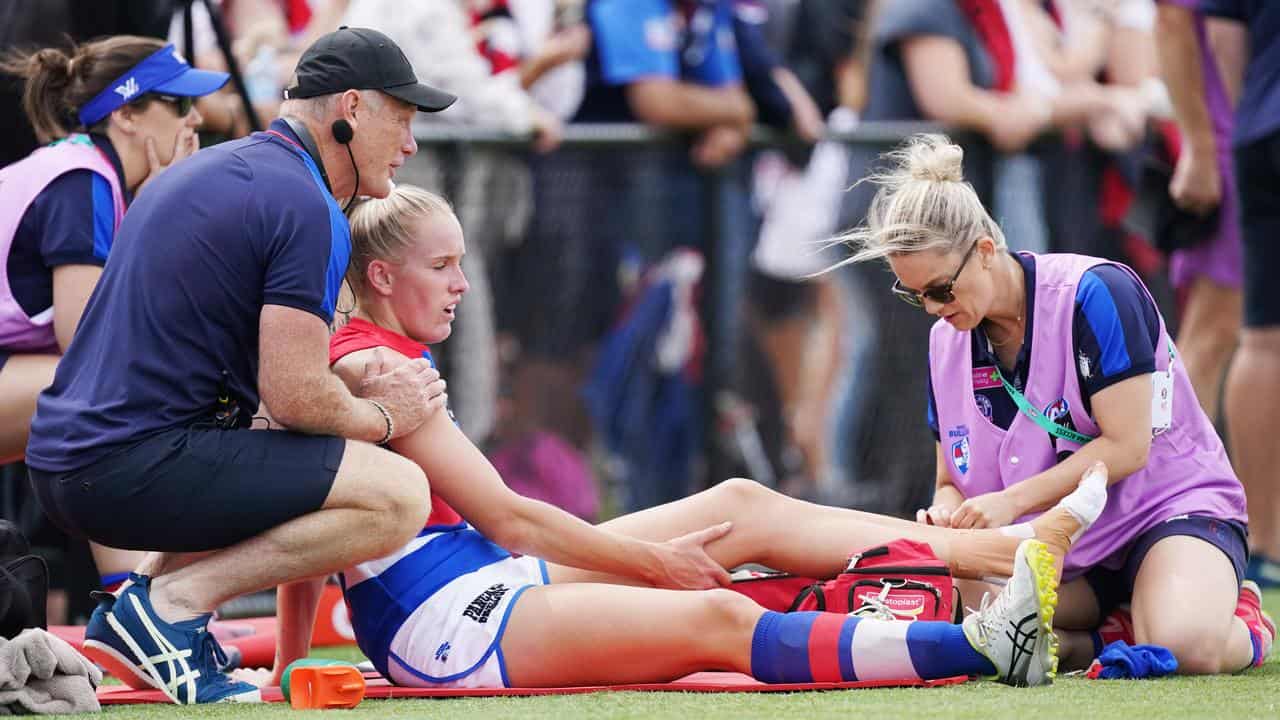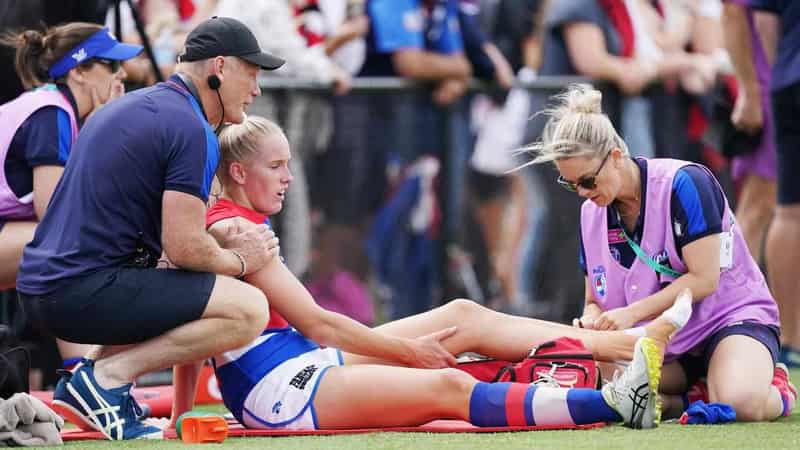
Neck muscle training could be key to protecting women's footballers, with a study finding they are far more likely to suffer concussion than their male counterparts.
A University of South Australia study - touted as the first large-scale injury profile of non-elite women's Australian rules football - tracked 424 SANFLW players through their 2023 season.
Along with anterior cruciate ligament (ACL) injuries and ankle sprains, the research found concussions were highly prevalent among women footballers.
Women footballers suffered 6.8 concussion injuries for every 1000 hours of match play, compared to 1.9 per 1000 hours among men.
It is a similar story in professional women's football, where players suffer 6.3 concussion every 1000 hours of match play.
The authors speculate smaller neck circumferences of women and lower neck strength, along with the more congested nature of women's football contribute to the extra concussions.
The different injury patterns, including a greater frequency of ACL ruptures, required more research because historical studies have predominantly focused on men, the authors said.
“There should be a focus on neck muscle training to reduce the incidence of whiplash concussion, lower limb neuromuscular control interventions to prevent ACL injuries and tackling technique training to reduce the overall amount of contact injuries,” sport science researcher and study co-author Hunter Bennett said.
“There’s been a lack of understanding around injury patterns in females … understanding the types of injuries that affect female players and how these occur is key to developing targeted strategies to avoid them.”
Pointing to the larger number of tackles in the women's game, the study suggested a review of tackling technique and potential rule changes to reduce the amount of contact could help raise safety levels.
Biological reasons are believed to contribute to the greater number of ACL injuries, but the authors suggest less historical experience with the rigours of Australian football because of cultural reasons would also be factors.









